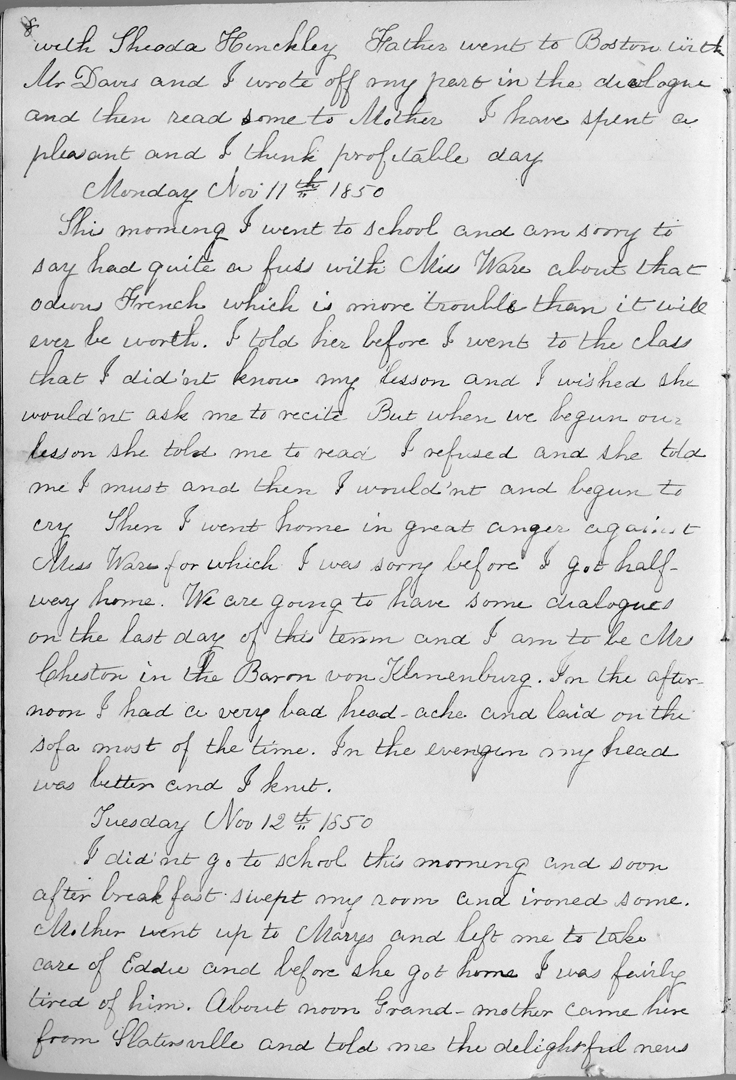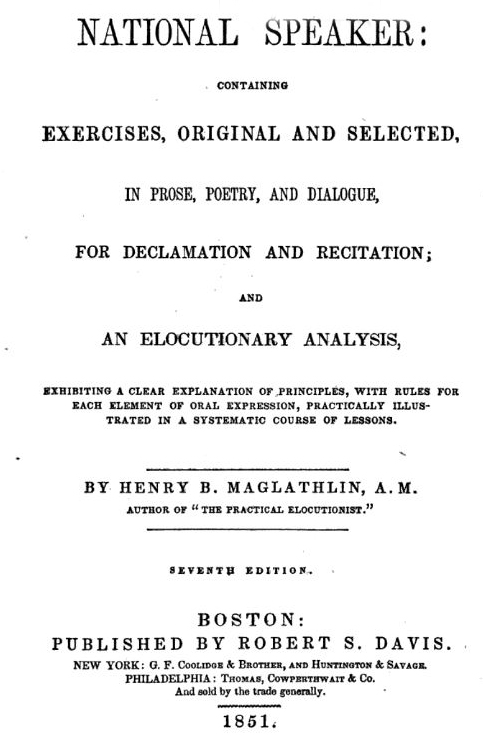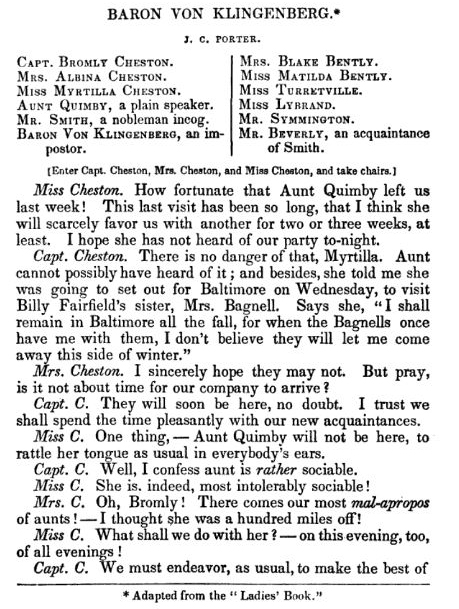
Theoda Josephine Hinckley
Theoda Hinckley (1835-1925). Her father, Holmes Hinckley, was a successful manufacturer of locomotives who purchased their house on Harvard St., right on the border with Brighton, as a "country estate". It is not currently clear how Adeline would have "walked home with her [from church]".
Baron von Klingenberg Dialog
Adeline talks frequently of doing recitations. This particular reference, the part of Mrs. Cheston in the Baron von Klingenberg dialog, comes from a publication entitled "The National Speaker" which contains pages and pages of technical discussion on the control of the human voice. This blog from the Geneva NY Historical Society gives an excellent description of the educational method in 1850:
Traditional schoolwork focused on training the faculties, or mental capacities. Philosophers thought that the mind was made up of discrete parts, each of which controlled an aspect of thought. The three main faculties were the will, the emotions, and the intellect. Training the intellect by acquiring knowledge developed reasoning. Training the will and emotions would cultivate self-control and appreciation of beauty. The ultimate aim of education was for pupils to develop good character through the improvement of these faculties.
To train the intellect, students were to memorize a body of knowledge and reproduce it through recitation or writing. This system of memorization and recitation was called mental discipline. It was based on the idea that the mind was like a muscle and memorizing provided regular exercise. Students memorized and repeated definitions, facts, mathematical problems and proofs, speeches, and poems from the primary years through college. Teachers acted as drill masters, rarely stopping the recitations to discuss meaning. An English observer wrote of American schooling: "Subjects are constantly ‘memorized’ without being understood, and hence their stay in the memory is precarious and transitory." Creativity and communication of ideas were not the point. Rather students were to gain knowledge of a subject, not necessarily understanding.
To train the intellect, students were to memorize a body of knowledge and reproduce it through recitation or writing. This system of memorization and recitation was called mental discipline. It was based on the idea that the mind was like a muscle and memorizing provided regular exercise. Students memorized and repeated definitions, facts, mathematical problems and proofs, speeches, and poems from the primary years through college. Teachers acted as drill masters, rarely stopping the recitations to discuss meaning. An English observer wrote of American schooling: "Subjects are constantly ‘memorized’ without being understood, and hence their stay in the memory is precarious and transitory." Creativity and communication of ideas were not the point. Rather students were to gain knowledge of a subject, not necessarily understanding.
From the actual publication:

